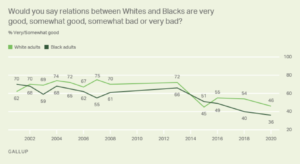The COVID Vaccine: The Long Pole in the Tent
"The Long Pole in the Tent" is a common term used by the US Army to describe the most difficult, or time-consuming, or resource-intensive task in getting a job from start to finish. Often, it is all three. We are in the midst of a nearly year-long effort to develop a vaccine that will fix the pandemic. Victory is in sight.
Not so fast. Vaccines don’t save lives. Vaccinations save lives. For that to occur, far more is needed than developing the molecules for a messenger RNA (mRNA) virus, or manipulating a cold virus (adenovirus) to carry elements of another cold virus (COVID19) that will prompt the human immune system to develop the necessary tools to kill the latter virus. That work is critical, and can only be done by highly-educated and disciplined scientists familiar with how to work at the molecular level with biology, how to develop and choose among candidate vaccines, how to establish testing methods and protocols, and thirty thousand other things few people on earth are qualified to do. We owe them a debt of gratitude.
Their work is in vain, though, until a vaccine becomes a vaccination, which is a vaccine that is injected into a patient. This brings us to the long pole in the tent: getting a manufactured vaccine safely and securely into the syringe to be injected into the patient.
The next step is manufacturing the vaccines. Why we need more than one is a story guaranteed to cure insomnia. Each vaccine uses a separate mechanism to interfere in the virus’s nefarious activities. None is “the best” for everyone, and some carry risks for certain groups but not risks for others. Why that is so will cure insomnia relapse.
Vaccine manufacturing isn’t like home-cooked meth. Very strict procedures, highly technical machinery, well-trained workers and pure ingredients are needed. Each batch must undergo quality assurance. When the vaccine is finished, it must be carefully measured into individual vials, usually of five doses each. Vials go into cartons of either 200 or 1,000 vials. Three vaccines are on the verge of being approved for manufacturing.
Each of these three vaccines each operates a bit differently, and each follows a different track in the supply chain. Obviously, all are tamper-evident sealed, bar-coded, receipted all the way through. Only one of them can remain effective at room temperature, let’s call that one ATZ. Ideally, everybody takes ATZ. Except it carries different risks for different people than the other two. And, ATZ, will have to re-enter Stage III trials to correct a testing error, so it won’t be ready immediately.
When it is ready, it’s easily handled with existing secure processes. On arrival at port it is offloaded, undergoes customs inspection and payment of any import fees, turned over to the consignee who is probably a Third-Party Logistics (3PL) provider. Because the vaccine does not require refrigeration, the contents are broken down in a warehouse for separate shipments to hospitals, pharmacy chains, group practices, distribution centers and government stockpiles. This will work well in First World Counties, even in landlocked countries such as Switzerland, Andorra, San Marino, the Vatican, and small nations such as Singapore, New Zealand, Iceland and Monaco.
The Third World is not so lucky. Much of the world is tribal, and vaccines entering a tribal country are likely to be kept by the ruling tribe to keep subjugated tribes in line. Keloptocracies and mob-ruled countries will make equitable distribution problematic. Lack of reliable roadways or railways will delay deliveries and lose some vials. Stops at international and intranational borders offer opportunity for mischief. And, keeping track of where things are is difficult enough in First World countries; in Third-World countries, the basics are still aspirational.
Even first-world countries such as Bahamas face a daunting task reaching individual islands. Small countries, such as Palau or Samoa, will never be a priority for scheduled air travel nor ocean cargo. Then, there are dozens of areas of active conflict, ranging from Donbass in Ukraine to war of starvation in Yemen. And India still struggles with the basics.
All of this is for the best case. The other two vaccines present much greater logistical challenges and will be dealt with in Chapters Two and Three. Where we are will then be addressed in Chapter Four.

